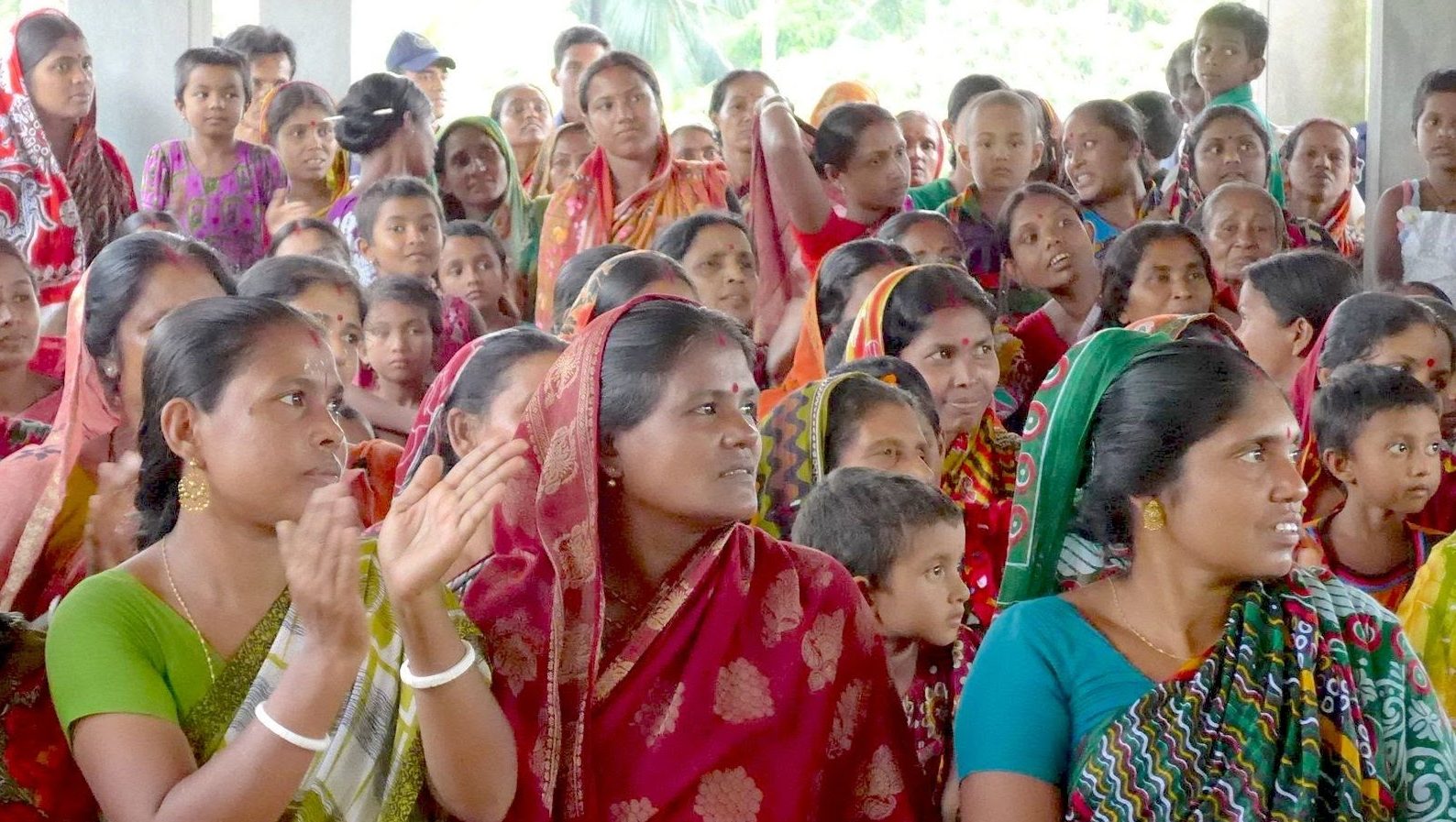Eleventh in a series for #16Days Against Gender-based Violence by John Coonrod, PhD. Updated 2022. Photo: Volunteer women leaders meet with local government to halt domestic violence in Khulna, Bangladesh.
December 5, 2022 is International Volunteer Day (IVD). The UN states “that we celebrate our theme of solidarity through volunteering. For the future of our planet, we must act together and we must act now. This is not an era to stand alone but together, as one, in solidarity with each other. Rising inequalities throughout the world implore that we need to work together to find common solutions. Volunteers, drawn together by solidarity, develop solutions to urgent development challenges and for the common good.”
As importantly, halting gender-based violence depends on volunteers, most of which happens within the family and is usually invisible to the outside world. Victims are usually too frightened to report it to the authorities, and are often isolated, perpetuating what can lead to death: UNWomen reports that 137 women are murdered every day by a family member.
A key strategy is to ensure every community has respected, knowledgeable and highly visible volunteer community leaders who have enough voice with local authorities to make something happen. Women leaders represent someone safe a woman can turn to as we illustrated here.
Both men and women can play leadership roles in transforming social norms that find domestic violence “acceptable” or even justified. The American Centers for Disease Controls has a detailed booklet on these strategies at this link.
One sad fact about those of us who are male is that “behavior change communications” rarely work on us. What has proven to work is to establish spaces for critical reflection by men such as “Program H” (in Spanish or Portuguese) or “Manhood 2.0” in the USA by Promundo.
I have personally witnessed the power of men thinking through these issues with a simple 3-question workshop:
- What are 20 reasons why women should be full and equal partners in development?
- What are 20 ways that our society prevents women from being full and equal partners in development?
- What are 20 actions you could personally commit to that might transform this situation?
I noticed that 20 is an important number here to ensure the reflection gets beneath the surface. For example, recognition that women are doing most of the work rarely gets mentioned before getting to response 16 or 17. And in question two, responses move from seemingly chivalrous answers to the ugliest forms of misogyny.
These examples illustrate this year’s theme of solidarity — a principle vitally important in ending gender-based violence.


